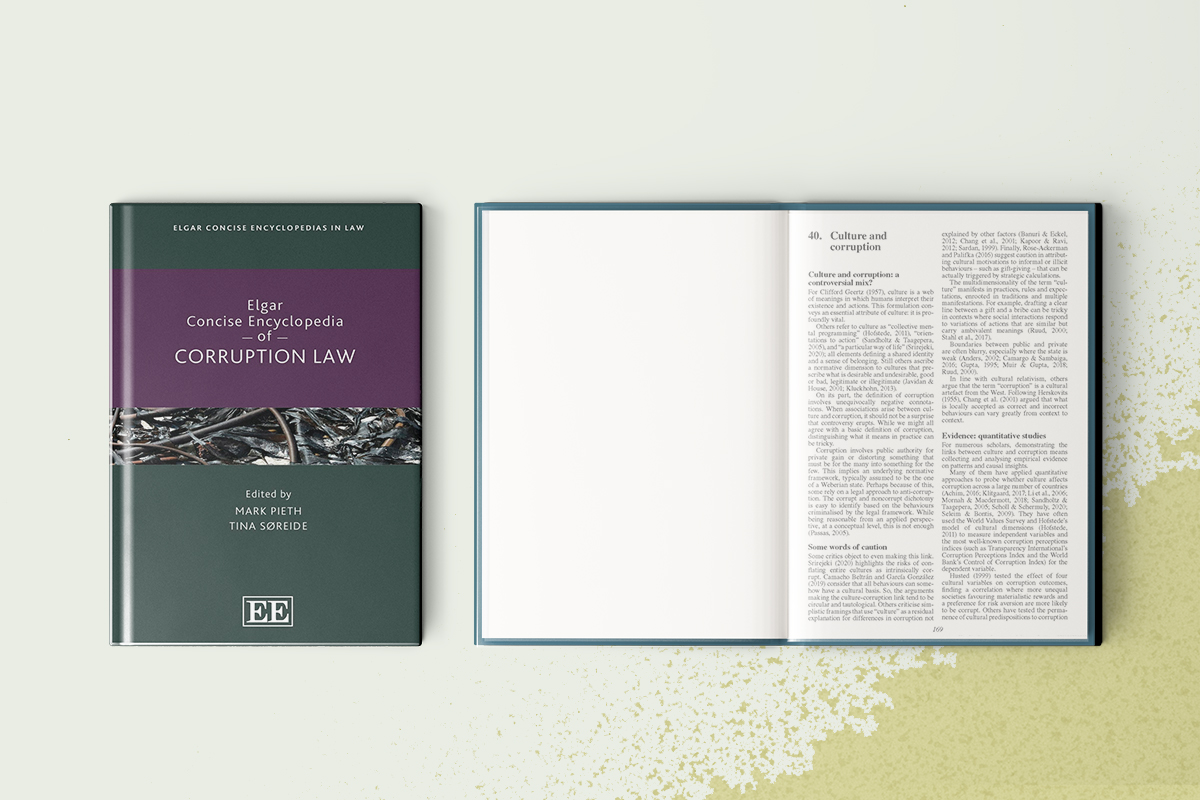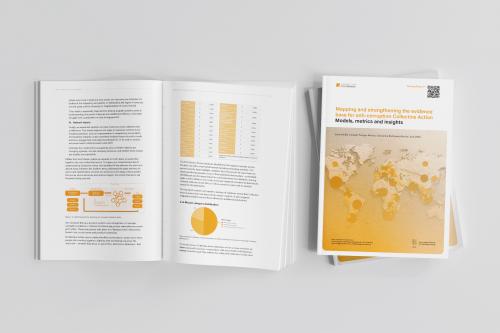Culture and corruption: a complex relationship

If someone gives a healthcare worker a “gift” in return for faster treatment, is that a bribe or just a cultural expectation? Are some cultures inherently more corrupt than others? And does the meaning of corruption vary according to cultural context?
These are just some of the controversial and complex issues that scholars have asked in relation to culture and corruption.
We summarised the key debates in a chapter contributed to the new Elgar Concise Encyclopedia of Corruption Law. In brief:
A tricky topic
Even the juxtaposition of “culture and corruption” causes unease: the word “culture” tends to have a neutral or positive connotation, while “corruption” is practically always negative. Many are understandably uneasy about the risk of labelling entire cultural groups as “corrupt” and warn against simplistic explanations of corrupt behaviour because "it’s in their culture".
In contrast, others refer to cultural relativism, claiming that the concept of corruption is an artefact of the West and that local standards for what is and is not correct behaviour vary widely.
Still others apply quantitative research methods to understand the links, for example comparing measures of cultural factors in different countries with indices of perceived corruption in those same countries. One study found a correlation between high levels of perceived corruption and more unequal and risk-averse societies that favour materialistic rewards.
But correlation is not causation, as we know, so it is hard to draw conclusions about whether corruption causes those cultural factors or vice versa.
Going deeper into social norms
Qualitative research approaches focus on local conditions, narratives and legitimisation processes. And what stands out across many countries is the importance of personal relationships in citizens’ interactions with the state. As our research in Tanzania and Uganda has shown, for example, relationships are used instrumentally to gain easier access to public services, circumvent formal rules and gain undue advantages in business dealings, among other things.
While these personal relationships are shaped by social and cultural norms around status, respect, shame, guilt, peer pressure, etc., they occur across many different countries and cultures. So it is not only simplistic but flatly wrong to say that entire groups of people are inherently corrupt because of their culture.
Overcoming shortcomings of the state
Personal relationships are necessary to overcome or compensate for the shortcomings of formal state institutions. Participants in our field research in various countries typically condemn corrupt behaviours, including the use of personal relationships to gain an undue advantage. But they continue to engage in these behaviours regardless.
Why the paradox?
- First, because conflicting values of public duty versus social obligations may trap public officials, no matter how honest they are in their hearts. That is especially the case where unwritten social norms like reciprocity are stronger than formal, legal rules.
- Second, citizens may be forced to resort to corruption as the only way to access essential services – and they become especially likely to do this when they see and believe that “everyone is doing it”.
Where the state can provide access to services, equal treatment and decent standards of living through its formal laws and institutions, it is far less likely that corruption will be seen as necessary and a normal cultural practice.
The conclusion: nobody is inherently corrupt because of their culture. But corruption can become socially legitimised in contexts where it is the only way to get around the shortcomings of the state.
Learn more
- The Elgar Concise Encyclopedia of Corruption Law is co-edited by Mark Pieth (the Basel Institute’s founder and former President) and Tina Søreide of the Norwegian School of Economics. Enter the code CRPT35 at the checkout for a 35 percent discount off the list price.
- Read Claudia Baez Camargo’s quick guide to social norms and corruption.
- See a summary of our research project exploring how individuals invest in creating informal relationships and networks in order to obtain public services or business deals.
- Learn more about the work of our Prevention, Research and Innovation (formerly Public Governance) team.





